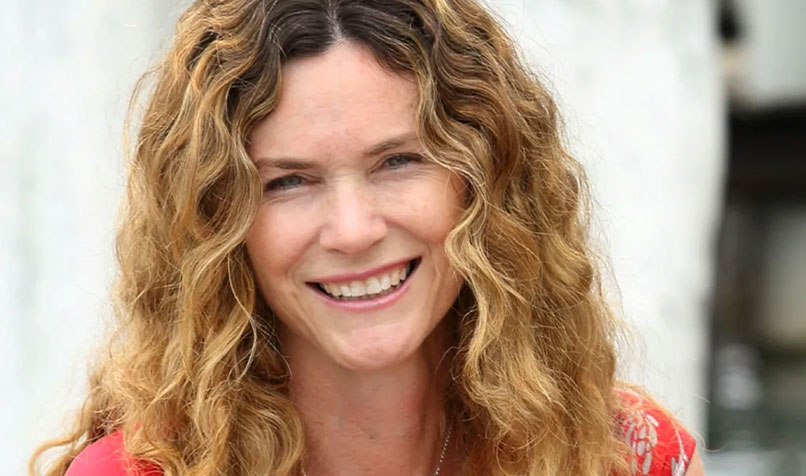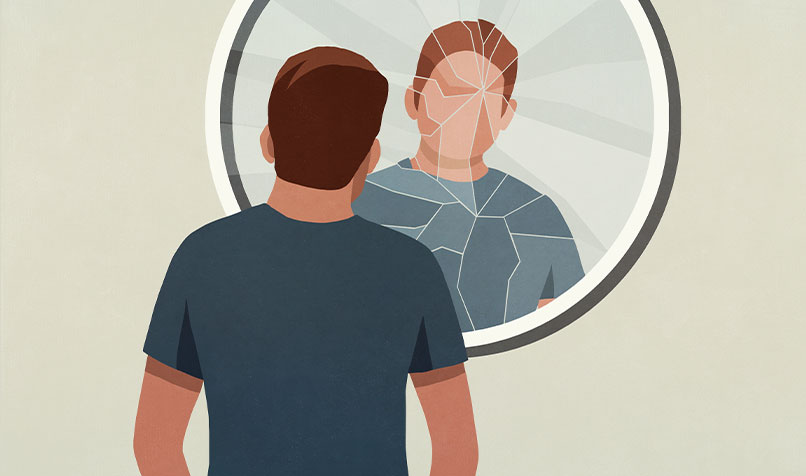Loading component...
At a glance
- The pandemic has drawn focus on the importance of mental health first aid as an important part of an organisation’s commitment to good mental health.
- Mental health first aid involves the early response to a client or employee struggling with mental health problems.
- Is is often easy to miss the first signs of a problem, especially in a remote working environment, and mental health first aid training helps business advisers and leaders recognise these signs early.
Two years ago, in the middle of the night, Bernadette Smith FCPA was woken by a phone call. On the other end of the line was a deeply distressed client.
“He told me he wanted to commit suicide,” says Smith, a director of Perth-based public practice Aspen Corporate. “When you get a call like that at 3am, it’s terrifying, and you don’t know if you’ve said the right thing. We’re trained as accountants to help people, but it can be hard to know where to draw the line. Where does your role stop?”
As trusted advisers, accountants like Smith are exposed to much more than their clients’ financials. The anxiety triggered by divorce, elder abuse, family friction or business failure, for instance, are often brought along to business meetings.
Since the onset of the COVID-19 pandemic, however, many public practitioners have witnessed a significant rise in both their small and medium-sized enterprise (SME) clients and their own employees struggling with their mental health.
As a result, the industry came together to develop mental health “first aid” training.
A growing struggle
Well before the pandemic, mental illness was the single biggest cause of disability in Australia.
Data from mental health research body Black Dog Institute shows that one in five Australians will experience some symptoms of mental illness in any given year. About 60 per cent of them won’t seek help.
The pandemic has added an additional layer of mental ill health due to social isolation, job loss, business strain, fear and uncertainty.
In Singapore, where approximately one in seven people report experiencing a mental health challenge in their lifetime, suicide prevention organisation Samaritans of Singapore received more than 39,000 calls for help in 2020 alone.
That represents an 18 per cent increase from the year before.
It’s a similar case in Malaysia. Between March 2020 and May this year, just over 85 per cent of distress call statistics received by Malaysian Government agencies were related to mental health.
“When the pandemic hit, we could see signs of mental health strain everywhere,” says Smith. “We had staff members who were really struggling.
“Accountants have witnessed some pretty significant mental health challenges in their clients well before COVID-19, but we just haven’t really had any formal training to help with it.”
Training you can count on
The situation looks set to change with the recent launch of Counting on U, a workplace mental health first aid and relationship-building program that provides training to business advisers to better support the needs of SME owners.
Smith was one of the first to sign up to the program, which is funded through the federal government’s BusinessBalance initiative and delivered by Deakin University in partnership with organisations including CPA Australia, Chartered Accountants Australia and New Zealand and the Institute of Public Accountants.
Professor Andrew Noblet, director of research in the department of management with Deakin University’s faculty of business and law, says mental health first aid training provided in the course helps participants to identify early signs of distress and to prevent an escalation.
"Business advisers often feel nervous about what to say when they suspect that their client is becoming overwhelmed or showing signs that they are struggling. They can be worried that they'll say something that makes it worse."
“The feedback that we’d received from the accounting bodies was that business advisers often feel nervous about what to say when they suspect that their client is becoming overwhelmed or showing signs that they are struggling,” he says.
“They can be worried that they’ll say something that makes it worse.”
Karen Conlon FCPA, principal at SumTotal Accounting and Business in South Australia, completed the Counting on U program earlier this year and says it has made her “feel more comfortable in asking some questions and providing support”.
“Accountants are seen as the trusted advisers, and so we have conversations with clients that are not purely around the financial viability of a business,” she says. “We talk about their families and other aspects of their life.
“I have a client whose family member has anorexia, and this is having a huge flow-on effect on the family,” adds Conlon.
“I could see that my client was struggling and, after doing the course, I had the confidence to ask some questions about how she was feeling, listen to her story and then talk to her about groups that could support her.”
On-site mental health first aid

If there one silver lining to the COVID-19 crisis, it is the shift in attitude towards mental health. While every modern office has a trained fire warden and a first aid officer, more businesses are adding another designated person to the team – a mental health first aid officer.
Rachel Clements, director of psychological services at the Centre for Corporate Health, says she’s never seen “so much openness” about mental heath.
“Prior to COVID-19, few people were willing to disclose mental health challenges, but then the culture just rapidly shifted overnight,” she says.
“It really put people on a level playing field. I think the organisations that were perhaps considering doing something about mental health in the workplace were suddenly propelled into that space, because mental health was such a high risk that they were trying to mitigate last year.”
Dr Mark Deady, post-doctoral mental health research fellow at Black Dog Institute, says many managers can miss the signs that suggest employees are distressed.
“With more people working from home, it’s important for managers to keep lines of communication open, because it is easy to miss signs when you’re not seeing someone on a daily basis,” he says.
“Changes in work performance, in motivation, in appearance, in mood and in social connectedness can be signs that someone may be struggling.”
Mental health first aid officers in the workplace are trained to see these signs. Clements says the evidence base behind the training is its peer-to-peer methodology.
“People may not wish to disclose something to their manager, but they may feel very comfortable sharing that with a peer,” she says.
“Businesses need to have people who are trained appropriately. Other considerations include gender split and having people at different levels of the hierarchy.”
Mental health support requires leadership buy-in, adds Clements.
“We have been saying to managers that they need to understand the psychological risk profile of their teams, because they can’t afford not to,” she says.
“That means knowing who has got three children under the age of seven whom they are homeschooling and trying to work a full-time job at the same time. Who has a partner who has just lost their job and is under financial distress? Who in your team lives alone?”
Everyday conversations

Clements encourages leaders to have “everyday conversations” with their teams about wellbeing.
“That doesn’t mean just jumping in there and having a conversation when you notice someone is not OK,” she says.
“It’s about having everyday conversations, and that could be something like, ‘I’ve noticed you’re working online really late. How about we talk about some ways that we can assist you to get a little bit more balance in your life’, or ‘I know you’ve got family overseas. I’m just calling you to see how you are going, as I know that’s been on your mind lately’.
“It doesn’t have to be ‘mental health’ conversations, because that’s what can make managers feel uncomfortable,” adds Clements. “I think it’s about changing the dial on the language and having everyday conversations with people about their wellbeing.”
"I didn't know what mental health number to ring, but now I do, and I know what steps to take to get someone else to help, who is skilled in the area of mental health. I've got confidence that I'm doing the right thing"
This was the approach taken by Ray Lansdown CPA earlier this year, when he called to check in on a client who he suspected was struggling with his mental health.
“I have a client in his early 40s, who is experiencing a high degree of financial pressure, but the extent of it was hidden from me until only a few weeks ago,” says Lansdown, who owns Image Accounts in Sydney and completed the Counting on U course earlier this year. “I decided to call him to check in on his wellbeing.
“I said to him, ‘I know it doesn’t seem like it at the moment, but things will get better. I can relate to some of the stress you’re under, and there will be better days ahead’. I could hear a sense of relief in his voice. I just wanted to let him know that there was somebody else who kind of understood how he was feeling.”
Everyday conversations

Like countless others, Lansdown has struggled with his own mental health in the past and believes this is an issue that requires greater attention.
“I experienced a family tragedy at the end of 2013, when my sister passed away suddenly at the age of 52,” he says.
“I was really struggling for a while with that, and it was suggested by a family friend, who is a trained grief counsellor, to talk to a GP [general practitioner] about getting some help. I had no idea what I was going through or what help was available. That was a game changer for me, because my GP was very supportive and referred me to a psychologist.
“The difficulties that an individual may be going through are often complex and layered, but the Counting on U course has given me confidence about the steps to take to help in some way,” adds Lansdown.
“I’ve actually implemented the training on a couple of occasions now, whereas I may have previously shied away a bit from the subject of mental health with clients.”
For Smith, that early morning phone call she received in 2019 provided the incentive to undergo mental health first aid training. She says the Counting on U program has given her confidence to speak to both employees and clients about their wellbeing.
“We all want to do the right thing, but having some guidance about who you can call and what the best approach might be is very helpful,” she says.
“Do you take a phone call at 3am? After that experience with my client, I couldn’t sleep for a number of weeks. I actually rang his family and asked them to go over to see him. I didn’t know what mental health number to ring, but now I do, and I know what steps to take to get someone else to help, who is skilled in the area of mental health. I’ve got confidence that I’m doing the right thing.”

